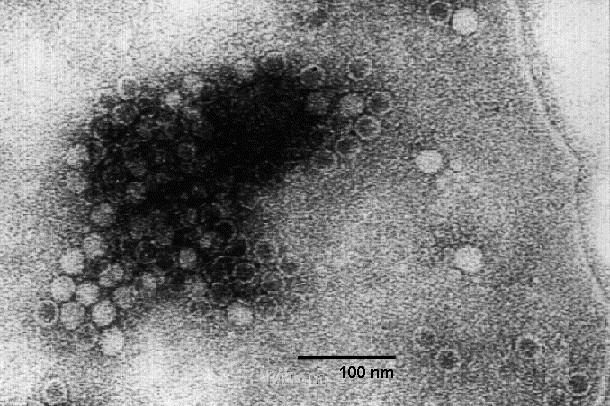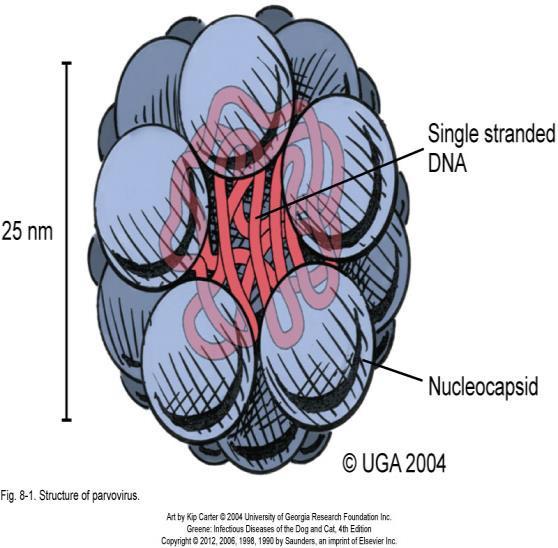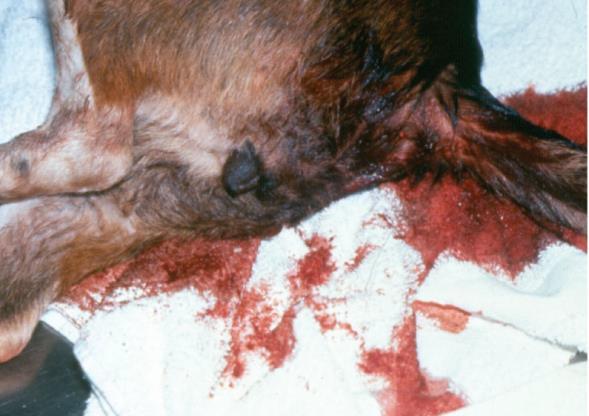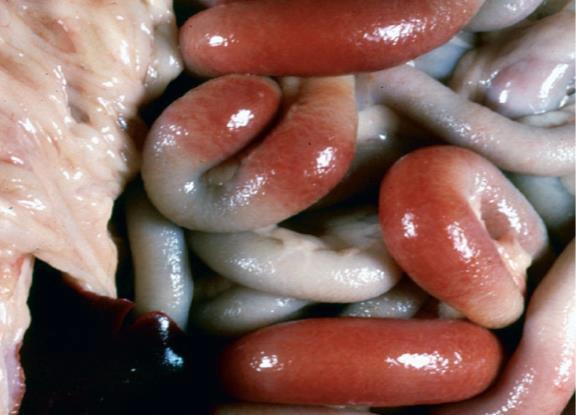| Catalog number | RC-CF02 |
| Summary | Detection of specific antigens of canine parvovirus within 10 minutes |
| Principle | One-step immunochromatographic assay |
| Detection Targets | Canine Parvovirus (CPV) antigens |
| Sample | Canine Feces |
| Reading time | 5 ~ 10 minutes |
| Sensitivity | 99.1 % vs. PCR |
| Specificity | 100.0 % vs. PCR |
| Quantity | 1 box (kit) = 10 devices (Individual packing) |
| Contents | Test kit, Buffer bottles, Disposable droppers, and Cotton swabs |
| Storage | Room Temperature (at 2 ~ 30℃) |
| Expiration | 24 months after manufacturing |
| Caution | Use within 10 minutes after openingUse appropriate amount of sample (0.1 ml of a dropper)Use after 15~30 minutes at RT if they are stored under cold circumstances Consider the test results as invalid after 10 minutes |
Various symptoms including vomiting and diarrhea are the symptoms used in diagnosing sick dogs. Fast transmission in a short period of time raises the possibility that canine parvovirus is the cause for the infection. In this case, the examination of feces of the sick dogs can bring to the light the cause. This diagnosis is carried out in animal hospitals or clinical centers.
Until now, there are no specific medicines to eliminate all viruses in the infected dogs. Therefore, early treatment is critical in curing infected dogs. The minimization of electrolyte and water loss is helpful for preventing dehydration. Vomiting and diarrhea should be controlled and antibiotics should be injected into the sick dogs to avoid second infection. More importantly, a close attention should be paid to the sick dogs.
In 1978 was known a virus which infected dogs regardless of age to damage enteric system, white cells, and cardiac muscles. Later, the virus was defined as canine parvovirus. Since then, the outbreak of the disease has been on the rise worldwide.The disease is transmitted through direct contacts among dogs, in particular in places like dog training school, animal shelters, playground and park etc. Even though canine parvovirus does not infect other animals and human beings, dogs can be infected by them. Infection medium is usually the feces and urine of infected dogs.
Canine parvovirus. Electron Micrograph by C Büchen-Osmond. Http://www.ncbi.nlm.nih.gov/ ICTVdb/ICTVdB/50110000.htm

The first symptoms of the infection include depression, appetite loss, vomiting, severe diarrhea, and the increase in temperature of the rectum. The symptoms occur 5~7 days after infection.
The feces of the infected dogs become light or yellowish gray.
In some cases, fluid-like feces with blood can be shown. Vomiting and diarrhea causes dehydration. Without treatment, dogs suffering from them can die of fit. Infected dogs usually die 48~72 hours after showing the symptoms. Or, they could recover from the disease without complications.
In the past, most of the puppies below the age of 5 months and 2~3 % of adult dogs died of the disease. However, the fatality rate has sharply decreased due to vaccination. Nevertheless, puppies younger than 6 month- old dogs are at high risk of being infected with the virus.Small intestine at necropsy from a dog that died suddenly of parvovirus enteritis. Regardless of age, all dogs must be vaccinated against canine parvovirus. Continuous vaccination is necessary when the immunity of dogs is not known. Cleaning and sterilization of kennel and its surroundings are very important in preventing the spread of viruses. Be careful that your dogs do not contact the feces of other dogs.
Regardless of age, all dogs must be vaccinated against canine parvovirus. Continuous vaccination is necessary when the immunity of dogs is not known. Cleaning and sterilization of kennel and its surroundings are very important in preventing the spread of viruses. Be careful that your dogs do not contact the feces of other dogs. In order to avoid the contamination, all feces must be managed properly. This effort should be done with all people participating to maintain the neighborhood clean.
In addition, consultation by experts like veterinarians is essential in the prevention of the disease. DOG with severe bloody diarrhea characteristic of severe parvovirus enteritis.
DOG with severe bloody diarrhea characteristic of severe parvovirus enteritis.